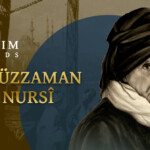On this week’s Unscripted we’re joined by a pair of history communicators, Dr Stef Keris and Abu Zakariya. They talk about the problem with “hero” discourse, history as a tool for power, the importance of learning our history, and of course: GIANTS of Islam.
Watch
Listen or Download
[donationbanner]
Source: www.islam21c.com










Abu Zakariya’s comment at the end that “one of the key inhibitors for Muslims…accessing useful information on history is language” suggests that he does believe that such knowledge exists in the Muslim world but it seems to contradict what he said earlier which is,
“The most committed historians when it comes to Islamic history are not Muslims. So if Muslims are not willing to look at, for example, the early wars, the civil wars in Islam and be critical about the facts that actually happened, there are many orientalists, there are many people who hate Islam who will not shy away, they don’t have the same principles. If we allow our Muslim youth to grow up in this sheltered and this really kind of superficious (sic) coating of reality then what will happen is that when they go to university later on, when they’re going to society, they’re going to encounter these arguments and they have not been prepared whatsoever for what they come across, for example…Sayyidna Uthman (ra) burned certain masaahif…”
I agree with the latter statement, at the end of the video, as the Muslim world has not shied away from being critical of the facts. Many of these facts have been made available even in English through websites like islamqa.info, channels like PeaceTV and through British and American Arabs as well as Arabic speaking non-Arabs in the West, including some of the authors at Islam21C. Whether it’s through seerah, the 4 great scholars of the 4 major schools of thought, or even scholars who lead rebellions, you can’t learn about these topics without being confronted by uncomfortable truths about our Islamic history. Khaalid ibn al-Waleed (ra) and the killing of Maalik ibn Nuwayrah, the case of the daughter of an-Nu‘maan ibn Sharaaheel, the fitnah between Ali (ra) and Muawaiyah (ra), nepotism, Khalifs and Sultans drinking alcohol, Khalifs trying to force scholars to propagate certain opinions, imprisoning them and torturing them, Ottoman Sultans allowing women who were previously Christian concubines to interfere in matters of the state, Ottoman sultans taking young, fit Christian boys, converting them to Islam and training them to become part of their elite army when it was oppression to remove them from their families who had agreed to pay the Jizyah, jihad under the Ottomans becoming tyrannical and simply a way to conquer people and impose unjust taxes on them, and finally, the humiliating weakness of the Muslims during the time of the Tartars such as when a Tartar man told a Muslim man to wait while he found a weapon to kill him with, and the man did exactly that. These are but a few of the many issues that Muslim historians have not been shy to write about. When ibn Athir wrote about the Tartar invasion of Baghdad, it pained him to put pen to paper but he persisted so that we would know what took place.
These are just a few issues that I, as a non-Arabic speaker, have been able to learn about in English, from Islamic sources, so it is just plain wrong to suggest that the ‘most committed historians’ are not Muslims. One wonders how orientalists would hear about Uthman (ra) burning certain masaahif if Muslim historians hadn’t written it down in the first place! Also, if those who decide to go to university or live among disbelievers have not made the effort to learn Islamic history, which includes countless discussions in which the reality was not coated, then that’s their fault. Instead of blaming them, or advising (like you did at the end) that we should do more to learn languages so that we can access this knowledge or maybe by doing more to have it translated into English, you suggest that such history was never written in the first place. Ask your Arab friends who are interested in religion and politics and they will tell you about thousands of YouTube videos of Muslim scholars and historians discussing all sorts of controversial and uncomfortable issues in our Islamic history as well as the countless books authored by them.
If anything, it is some of the Islam21C authors who could be accused of ‘sheltering’ the Muslims and ‘coating’ the reality when they, in the past, are the ones who have glorified the Ottoman Empire (in an attempt to promote anything to do with Turkey) as well as the jihads in Bosnia and Chechnya (in an attempt to show the current fighting in Muslim lands as bad/wrong compared to the fighting that took place in these two countries) while failing to mention the horrors that took place there at the hands of Muslims.
This is the second time in the past week that I have come across a Muslim in the public eye endorsing western academics and scholars while bashing Muslim ones. It’s disgusting as it, unjustly, creates distrust of and a lack of confidence in our past and current Islamic scholarship while, simultaneously, throwing our youth into the arms of western alternatives who certainly don’t have our best interests at heart.